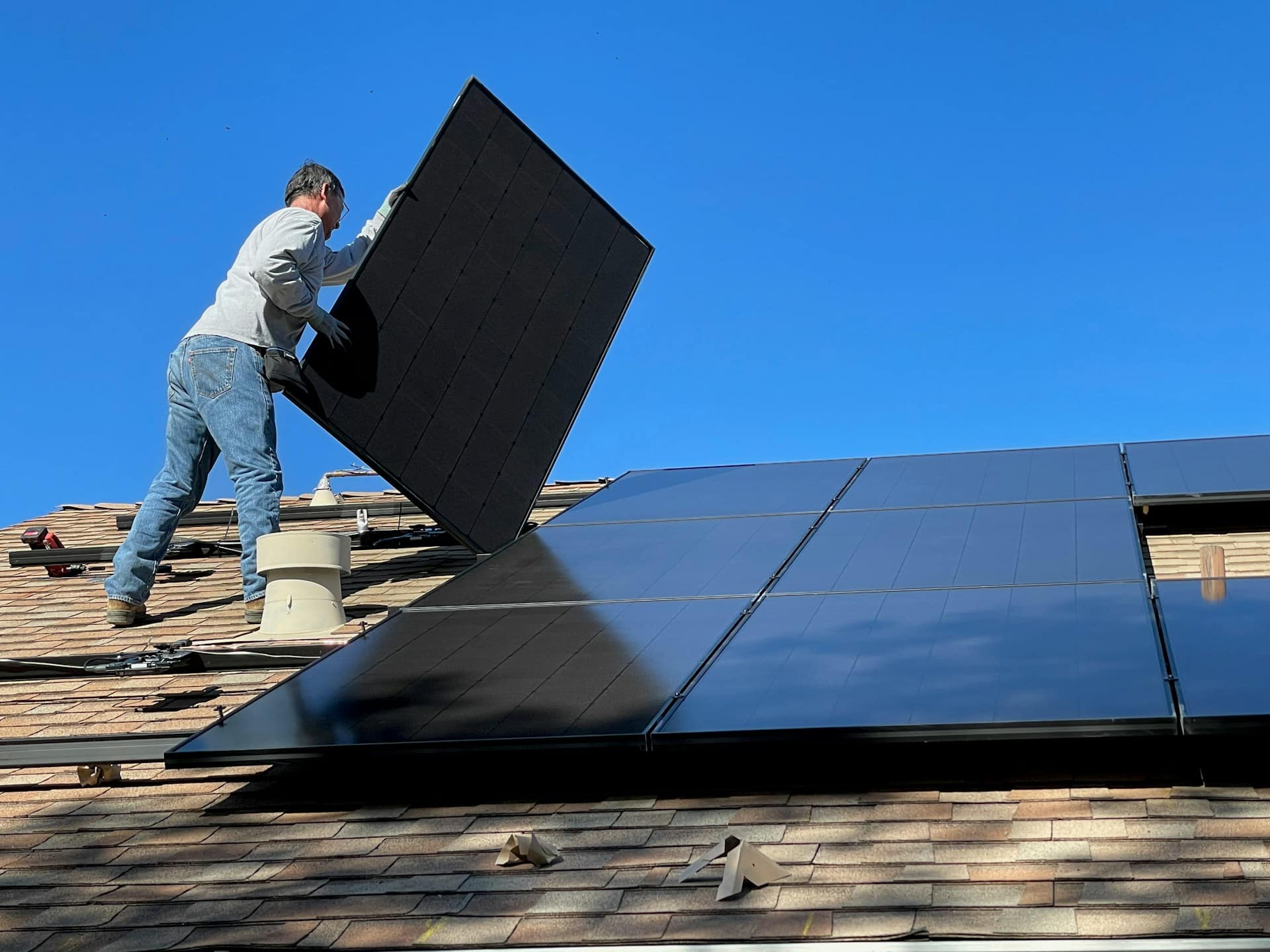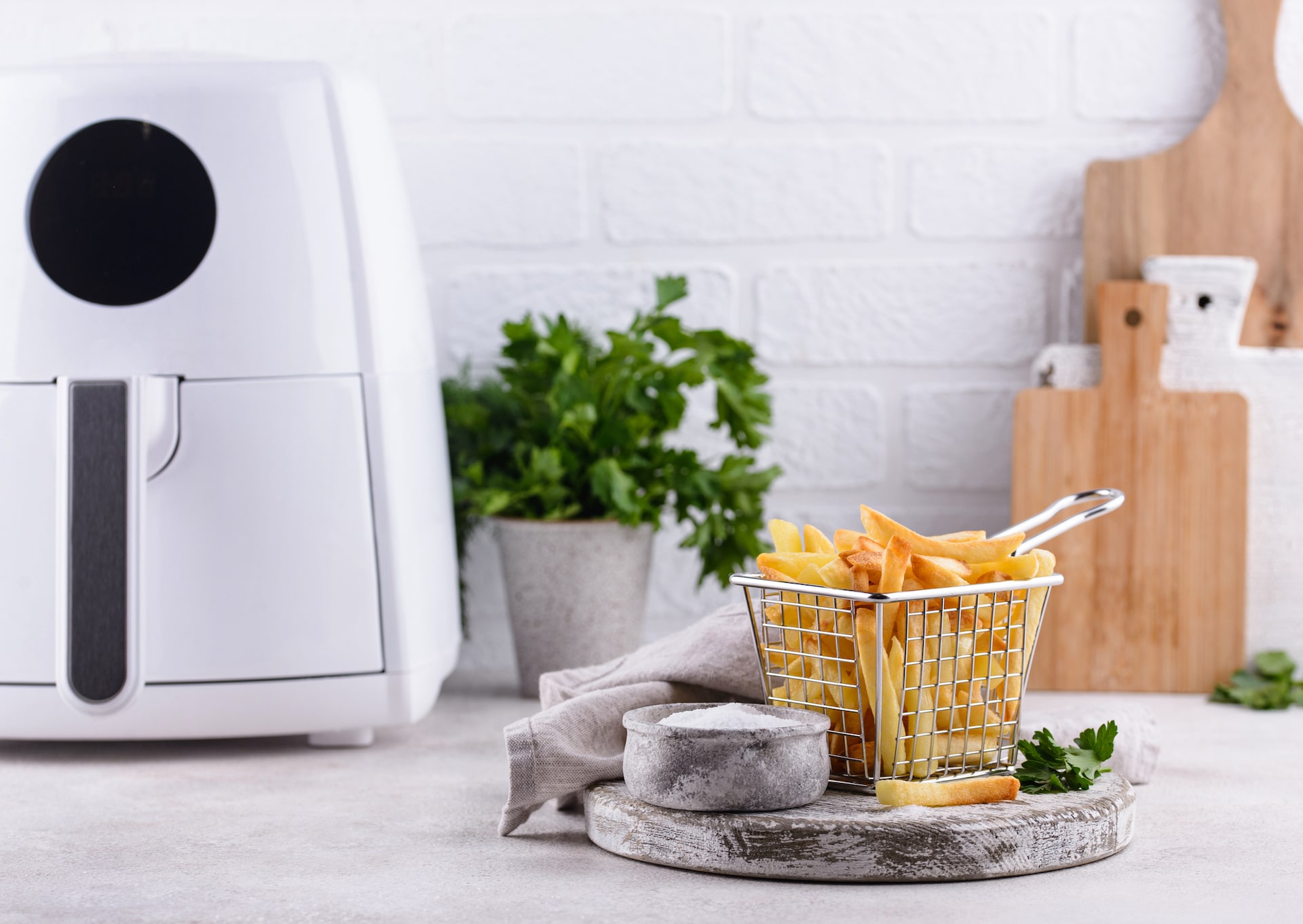This article may contain affiliate links. We may receive a commission for purchases made through these links. Privacy Policy.
It typically happens at some point. Your child comes to you with hearts in their eyes, pleading with you for a new family member. “My new baby brother is fine,” they say, “but what I’d really love is a dog.” From there, they list off a number of the reasons why it’s a good idea.
They might even make a presentation on the subject, at which point they’ll promise to take care of the dog if you allow them to adopt one. Sounds amazing, right? You won’t have to do a thing!
Well, in theory. As a parent, you know that you’re more than likely going to need to do your fair share of walking, poop-scooping, and grooming. And yet you cave anyway! Because, after all, how can you say no to that? And come on… What family doesn’t need a dog?!
However, as you likely know, not all dogs are suitable for families. Some breeds just aren’t a good fit for a family, especially families with small children. Plus, dogs that tend to mesh well with families won’t always fit in with every family out there. These are important points that you’ll want to know about before you adopt, rather than after.
But don’t worry! That’s what we’re here for, and if you’re on the hunt for the perfect dog breed for your fam, you’ve come to the right place.
Dog Breeds That Are Best for Families
According to small animal vet, exotic veterinarian, and veterinary consultant Sara Ochoa, DVM, some of the best family dogs include labs, dachshunds, terriers, and mixed breeds! Labs are great because “larger dogs are better with smaller kids,” says Sara.
She also mentioned that “they cannot drop or accidentally step on them and injure the dog.” Plus, Sara let us know that mixed breed dogs are an excellent choice because “these dogs are very hardy and healthy and live for many years.”
With that said, here are the 11 best dog breeds for families. With this information, you can make a decision that is best for you and your family. Plus, you’ll find a few tips to help you through the adoption process!
1. Labrador Retriever

According to the American Kennel Club, the labrador retriever is the most popular dog breed in America. There are many reasons why this lovable, all-American breed is a favorite, especially among families. Friendly and smart, these loyal dogs are good with children.
Plus, labrador retrievers are easy to groom, and they typically get along well with other pets in the household, too. The only downsides? If you’re looking for a smaller, always-quiet dog, this isn’t the dog for you.
Additionally, please note that labrador retrievers need a fair amount of exercise, so be prepared to play and walk regularly. Ideally, you would be able to offer this pup his own fenced-in yard.
This popular breed is good for families who want a dog with the following qualities:
- A smart, active dog
- A dog that needs comparatively little grooming
- A dog that’s good with kids and other pets
Related: Artificial Grass For Dogs [Everything You Need To Know]
2. Cavalier King Charles Spaniel

If you do want to go with a dog that’s on the smaller side, you may want to consider a cavalier King Charles spaniel. This breed has been loved by royals for centuries, and it is now a favorite playmate for families around the world.
As a small dog with long and fluffy hair, these pups are active and smart, without the energy levels and mischievousness that you might find in a dog of a similar size, like a terrier. The only downside? You might need to invest in a little extra grooming with this dog breed.
Cavalier King Charles Spaniels are good for families who want these attributes:
- A smaller dog
- A dog that’s well-behaved
- A dog that is gentle around children of all ages, including babies
3. Golden Retriever

A golden retriever is very similar to a labrador retriever, but the main difference is that golden retrievers have a slightly longer coat, which requires a little more grooming. Golden retrievers are smart and patient. Plus, they are rarely aggressive, though if you find that your golden retriever is slightly more responsive than you’d like, they are easy to train.
Like labrador retrievers, goldens are on the larger side compared to other dogs, and they do need frequent exercise. Whether that be walks, playing at the dog park, or running around in a fenced-in backyard, golden retrievers are typically down for anything and everything.
Golden retrievers are good for active families who want these traits:
- A smart, active dog
- A dog that is patient with children
- A dog that can accompany the family on active adventures, like hikes
4. Irish Setter

Irish setters look a little bit like golden retrievers. They both have similar face shapes and long, luxurious coats, but there are a few key differences. Smart, kid-friendly and energetic, Irish setters are extremely loyal.
This is good on the one hand, because they’ll become instantly attached to your kids, but it can prove problematic if you and the fam are away from home often since this breed is known for exhibiting separation anxiety. They also require a substantial amount of grooming.
Irish Setters are good for families who want these qualities in a dog:
- A smart, active dog
- A very loyal dog
- A dog that wants to go everywhere with the fam
5. Bulldog

Bulldogs are a great family dog… Yes, really! Bulldogs are often misunderstood because of their appearance, but their drooly jowls are full of nothing but love. This smaller dog breed is a great fit for those who live in smaller spaces, and a bulldog is especially great for someone who doesn’t want to spend hours of their day exercising with their dog.
The breed’s activity level stays relatively low, and they’re more apt to snuggle than sniff out trouble. Even so, that doesn’t mean they won’t play with the kids on occasion. The one major downside is that this breed is prone to developing health problems, so you will need to have proper pet insurance with your favorite vet on speed dial.
Bulldogs are good for families who want a dog like this:
- A smaller dog
- A less-active dog
6. Beagle

Beagles are a top pick for families who specifically want a very active dog. Hiking, hunting, camping… Beagles are down for it all! If you love outdoor adventures and you want a dog that is willing to go along for the ride, a beagle may be just the right pup for you.
However, if you’re not that active of a family, your fun-loving beagle may be more likely to get into trouble. Chewing, urinating where they are not supposed to go and engaging in other undesirable behaviors can all be signs that your beagle is not getting stimulated enough.
Additionally, beagles have a big bark that can make them ill-suited for apartments and small spaces. That’s because they are likely going to disrupt the neighbors.
Beagles are good for families who want this type of dog:
- A very active, adventure-ready hiking or hunting dog
- A playful, kid-friendly dog
7. Basset Hound

Love the look of a beagle but don’t think you can offer a beagle a lot of exercise? Opt for a less active pup instead, like the basset hound. Short and sturdy with floppy ears and soulful eyes, basset hounds make for an adorable companion, while also being less active than their other dogs. They’re also very loyal and known for being good with smaller children.
Basset hounds are good for families who want these qualities in a pup:
- A low-key, low-energy dog
- A smaller dog for smaller kids
Related: The 10 Best Subscription Boxes For Your Pets [Dogs, Cats, Birds And Horses]
8. Pug

Want a dog that’s going to be on the independent side? Interested in a pet that doesn’t necessarily feel like it needs to be around you 24/7? If so, you may want to consider a pug. The pug has been growing in popularity, maybe due to its unique and adorable face.
Independent and adaptable, pugs are one of those breeds that do well with changes in the environment. As such, they are less likely to experience anxiety. And while they may not look like it, they’re pretty active for a small dog, so be prepared to take a lot of walks or run around in the backyard with your pug pup.
Pugs are good for families who want dogs like this:
- A small dog for a small space
- An independent and easy-going dog
- A low-maintenance dog
9. Newfoundland

Newfoundlands are gentle giants. Fluffy and altogether lovable, they’re known for their protective nature and their extreme loyalty to everyone and everything. Dogs of this breed are frequently used for rescue work. You couldn’t ask for a better canine protector for your kids!
However, do note that the Newfoundland dog is, as mentioned, very big. You’ll want a large yard to give this type of dog all of the space it needs to run around. Additionally, this dog needs a lot of grooming due to its incredibly fluffy hair. And, like many larger dogs, the Newfoundland does have a short lifespan, living no more than 10 years on average. This is something to keep in consideration, especially if you’d prefer a dog that’s going to see your baby through his or her teenage years.
Newfoundlands are good for families who want a dog like this:
- An extremely protective dog
- An extremely loyal dog
- A large dog
10. Dachshund

Adorable, unmistakable and talkative, the dachshund is a good pick for families who want a pet with loads of personality. In fact, dachshunds have personalities in spades. They’re not terribly active, though regular walks and outdoor space are appreciated. They love to cuddle and they’re very loyal, too. They will guard your home just as well as any bigger breed of guard dog.
Note that dachshunds are notoriously difficult to train, so if you’re not up for the work that training entails, you may want to adopt an older dachshund at the very least. Additionally, dachshunds are known to experience more health problems later in life, so that is something to consider as well.
Dachshunds are good for families who are interested in dogs with these qualities:
- A dog with lots of personality
- A smaller dog for a smaller space
- A dog with fewer exercise needs
11. Bichon Frise

Sure, this dog looks a little on the prissy side, but if you’re looking for a dog with some class and a big heart, you can’t go wrong with the bichon frise. This poodle-esque breed is also a great option for families with allergies, as the coat of a bichon frise is hypoallergenic.
Their small size makes exercise a little easier, too, meaning you can walk fewer miles or have a smaller yard and your bichon frise pup will be more than content. The only downside? This breed is a bit of a barker, so it’s maybe not a good fit for apartments.
Bichon frises are good for families who want a dog that has these qualities:
- A hypoallergenic dog
- A small dog
Related: 9 Reasons Why Dogs Lick People [And Some Common Misconceptions]
Things to Remember as You Look for Your Perfect Pet
Beyond the recommendations above, though, keep the following five things in mind.
1. Remember That These Are Suggestions, Not Requirements
While labrador retrievers are typically very friendly in addition to being good with children and other pets, it’s not impossible to come across a very grumpy labrador retriever or one that snaps if he or she gets too annoyed. So, before you adopt a dog, make sure you ask the right people about the dog’s temperament. We even recommend observing the dog’s temperament for yourself before signing any paperwork.
2. Keep Size and Energy Levels in Mind
As you look through the various breed options, you need to keep the size and energy level of a dog you might adopt in consideration. While these traits may not determine the right breed for you all on their own, they certainly do impact a dog’s temperament and whether or not they’ll be ideal for your lifestyle.
For example, if you’re looking for a larger dog breed, you may want to go with a more low-key and large dog that won’t get overly excited. This could potentially increase the likelihood of your dog accidentally injuring your child. If you have a small living space, like an apartment, you also won’t want a large dog with a high energy level unless you can commit to going for walks and taking trips to the park throughout the day.
3. A Meet-and-Greet Might Be Best
Whether you’re adopting from a shelter or a rescue, make sure to ask for a meet-and-greet session before the adoption is finalized. Most shelters and rescues will require this, but if you do come across one that doesn’t mention it as a necessity, that could be a red flag. You’ll want to use this time to thoroughly read the dog’s temperament and see how they respond, not only to you but to your children as well.
4. Consider If Age is Important To You
Unlike what happens when you purchase a dog from a breeder, you get the added luxury and convenience of being able to choose your dog’s age when you adopt. This can be especially helpful if you’re not keen on doing the work that comes along with a puppy, like potty training. However, many pet parents find the work worth it when it means they’ll get to experience that adorable puppy stage. Consider what makes the most sense for your family and your lifestyle.
5. Don’t Overlook Mutts When Looking Around
While you may think that one of the above family-friendly breeds is absolutely the best fit for your crew, don’t forget to check out the mutts at your local shelter as well. You may just find a pup that is a mix between several desirable breeds, which will give you the personality traits and the quirks that you want without any of the downsides you’d rather live without.
What Type of Dog Will Be the Pup For You?
Whatever dog breed you end up going with, you’ll quickly see that welcoming a dog into your home and your life can be one of the most rewarding experiences. Pretty soon, you’ll end up wondering how you ever lived without Fido!
You might also be interested in: The 11 Best Large Breed Dogs For Families
The 11 Best Dogs For Families:
- Labrador Retriever
- Cavalier King Charles Spaniel
- Golden Retriever
- Irish Setter
- Bulldog
- Beagle
- Basset Hound
- Pug
- Newfoundland
- Dachshund
- Bichon Frise









